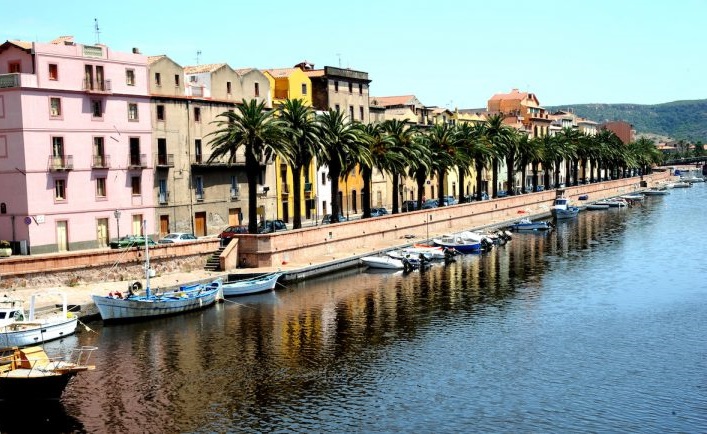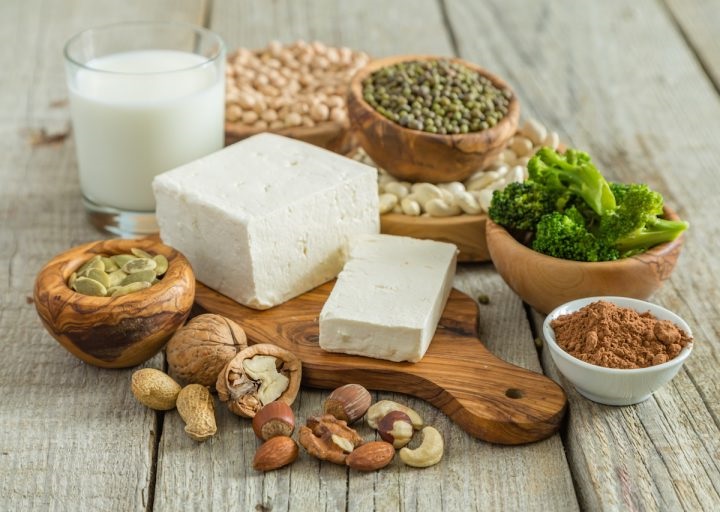Is there the right nutrition for a long life?

According to experts, with the right lifestyle you can live up to 10 years longer. In a study for National Geographic, author Dan Buettner examined which eating and everyday habits can support a long and healthy life, based on the peoples in which the population is becoming the oldest in the world.
THIS IS WHERE PEOPLE BECOME THE OLDEST
In 2004, the author Dan Buettner undertook a study to find the populations on earth in which people are becoming the oldest. Buettner calls these zones "Blue Zones". There are five of these zones in total:
- Sardinia
- Okinawa, Japan
- Nicoya Peninsula, Costa Rica
- Ikaria, Greece
- Loma Linda, California

In addition to various habits, he also studied the diet of the inhabitants of these "blue zones". Of course, it is not possible to adopt the lifestyles of these population groups one-to-one, but the study has revealed a number of aspects that people from other regions of the world can adopt in order to lead healthier and longer lives.
ARE THERE CERTAIN INGREDIENTS FOR A LONG LIFE?
What may be disappointing for some: there are no special foods that guarantee a long life. However, there are some similarities in the everyday life of the peoples where people are getting older, which are striking and which Buettner identifies in the study. This results in a total of 9 habits in which all peoples who live the longest agree:
- natural movement patterns
- meaning of life
- stress reducing routines
- 80% rule
- plant-based nutrition
- moderate consumption of alcohol
- religious affiliation
- family reference
- healthy social environment
The study shows that not only a healthy, plant-based diet and regular exercise contribute to a longer and happier life, but also the integration into a healthy and stable environment and the correct handling of stress play an important role in old age.
Natural movement sequences
Regular exercise is important for a healthy life - this should be clear to most of us. However, the movement of people who live the longest does not take place in the gym or on marathons, but is naturally integrated into everyday life. Movement here is not done for the sake of getting fitter, having a more attractive appearance or even as a lifestyle gadget, but rather it is movement that is naturally integrated into everyday life, work processes and the environment - it happens unconsciously and automatically - for example when working in the garden or on the way to work.
Sense of Life
Seeing a meaning in life may seem obvious to most people at first. In reality, however, most people pause far too seldom and ask themselves what exactly is the reason for getting up in the morning. This should be changed, because having a certain goal in life in mind and knowing its reason for existence can, according to the study, prolong life by up to 7 years.
Stress reducing routines
Even in the healthiest regions of the world, people have to live through stressful times. Stress can cause inflammatory reactions, which in turn are the trigger for a variety of (fatal) diseases. Unlike many of us, people from the "blue zones" have certain rituals that help them to deal with this stress. These can be, for example, certain times of the day when people pause briefly to commemorate deceased relatives, to pray or during which a nap is taken.
80% rule
Not eating until you are completely full can also help you to live longer. Inhabitants of the blue zones do not eat until they are completely full, but stop shortly before. The time of day also plays a role for these people, in the evening they eat the smallest meals or only snacks.
Plant-based nutrition
With regard to nutrition, the biggest factor common to all population groups in the blue zones is that the basis of the diet is vegetable. Beans, lentils and soya are the main food source - meat, especially pork, is only eaten about 4-5 times a month.

Moderate consumption of alcohol
A result that will delight wine lovers: The diet of the blue zones includes moderate alcohol consumption in the form of small amounts of wine. 1-2 glasses of wine per day with food therefore do not rule out ageing.
Religious affiliation
All the centenarians interviewed in the study belonged to a faith-based church. The type of denomination is not important.
Family reference
Just like the background of faith, family ties are an important part of life for all inhabitants of the blue zones. This includes, for example, that the parents who have grown old are not given to a home, but live with the children and are cared for by them, as well as lovingly looking after the children and their life partner.
Healthy social environment
The oldest people in the world are part of small groups that have a healthy lifestyle, support and motivate each other. Because a healthy or unhealthy lifestyle is contagious.